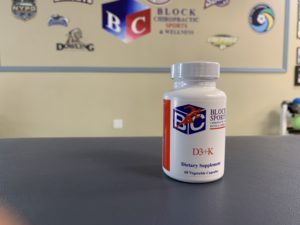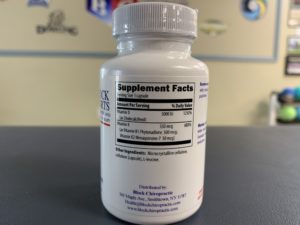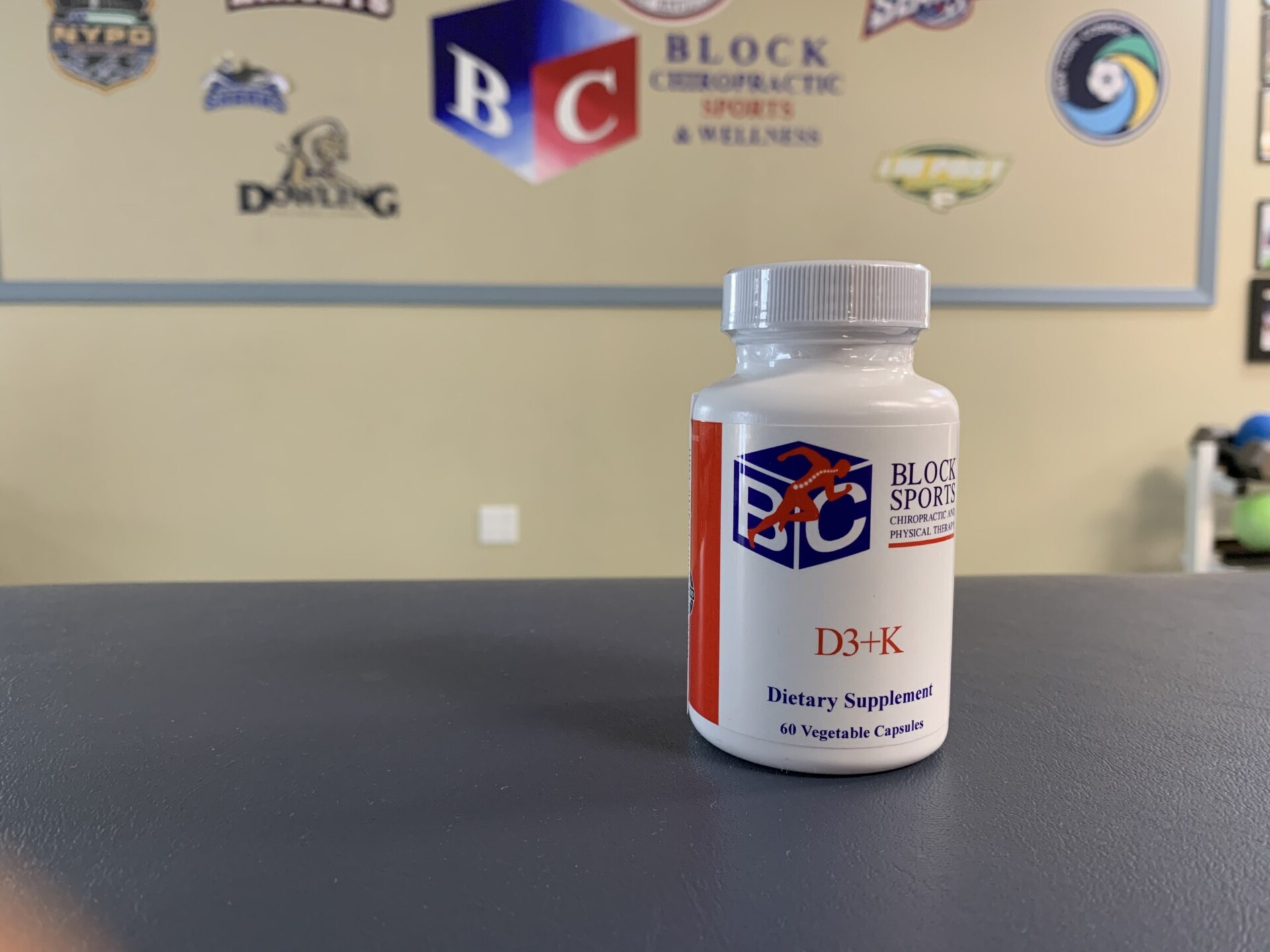IMPORTANCE OF VITAMIN D

What Is Vitamin D?
Vitamin D is a fat-soluble vitamin that is produced by the body and hopefully found in our diet. Vitamin D correlates well with bone health because the vitamin is important in helping the body absorb calcium and phosphorous (the two main elements in maintaining healthy bones). The issue is that most people are deficient in Vitamin D, because 1) people are uneducated on importance of Vitamin D and 2) natural food sources are relatively scarce. The New England Journal found that 1 billion people worldwide have inadequate levels of Vitamin D. With our current events, the significance of Vitamin D is rising, and this article will hopefully enlighten people on the vitamin’s benefits.
More Vitamin D Benefits:
Most of the cells and organs in our body have a Vitamin D receptor, which enables them to produce a product called 1,25-dihydroxyvitamin D. Due to this relationship, Vitamin D is influencing a large number of biologic pathways. This helps to explain the studies relating Vitamin D deficiency with increased risk for many chronic diseases like autoimmune disorders and type 2 diabetes. Additionally, Vitamin D promotes cell growth, improves neuromuscular and immune function and reduces unwanted inflammation. Later in this blog is a dedicated section to Vitamin D and its roll in immune function.
Recommended Intake
The Recommended Dietary Allowance (RDA), developed by the Food and Nutrition Board, represents a daily intake of Vitamin D to maintain bone health and normal calcium metabolism. The values are also based on minimal sun exposure and objectify the importance of Vitamin D.
| Age | Male | Female |
| 0-12 months | 400 IU | 400 IU |
| 1-13 years | 600 IU | 600 IU |
| 14-18 years | 600 IU | 600 IU |
| 19-50 years | 600 IU | 600 IU |
| 51-70 years | 600 IU | 600 IU |
| 70+ years | 800 IU | 800 IU |
How to Increase Vitamin D with Food Sources:
Getting enough dietary Vitamin D is difficult to obtain for most individuals because there are not many food sources naturally rich with the vitamin. The best sources are the flesh of fatty fish and fish liver oils. There are some concerns with consuming too much fish due to mercury levels, so if possible, try to purchase organically raised fish. There are some other foods like mushrooms, egg yolk and beef liver with smaller levels of Vitamin D. As with anything you put into your body, please consult your physician beforehand that it does not interfere with any pre-existing conditions. Listed below are the fish with the highest level of Vitamin D:
- Cod liver oil
- Salmon
- Tuna
- Swordfish
- Sardines
Increase Vitamin D Production Through Ultraviolet Light:
The second way to get Vitamin D into our body is through sunlight. When you are exposed to sunlight, there is a compound called 7-dehydrocholesterol that absorbs UV radiation and is converted into Vitamin D3. Factors that influence Vitamin D synthesis from the sun are:
- Seasons
- Time of day
- Latitude and altitude
- Air pollution
- Skin pigmentation
- Sunscreen use
- Age
***Disclaimer – always apply sunscreen when exposing yourself to the sun. This will not interfere with Vitamin D intake from the sun.
Supplements – Vitamin D3 or D2?
Regarding supplements, there are two types available in stores: Vitamin D3 (cholecalciferol) and D2 (ergocalciferol). Vitamin D2 is made from plants and used in fortified foods. Vitamin D3 is naturally produced in the human body and found in the food sources listed above. So, the question is which one is better? There was a well-produced study that compared the effects of D2 and D3 supplements onblood levels. They found that D3 supplements tended to raise blood concentrations of the vitamin more and sustained those levels longer than D2 supplements. There are also some experts that claim that D3 is the preferred form due to the fact that it is naturally produced in the body. Therefore, at this time, there is no definite answer. Either is going to benefit your levels of Vitamin D.
Importance of Vitamin D on Immune Function:
There is emerging evidence and research that shows Vitamin D has a positive effect on our immune system. Immune cells (B-cells and T-cells) all have Vitamin D receptors, which allow these particular cells to synthesize the active Vitamin D metabolite. Due to these receptors, these immune cells are also able to proliferate and respond to Vitamin D. This in effect allows Vitamin D to modulate the innate and adaptive immune responses.
Scientists have also found a link between Vitamin D deficiency and several autoimmune diseases. The Journal of the American Medical Association has reported that low levels of Vitamin D predicted the development of autoimmune diseases in the future. One specific study showed that if a mother’s Vitamin D levels are low during pregnancy, there is a statistically increased risk of the child developing pancreatic autoimmunity. In another study of lupus patients, more than 50% of the patients were either deficient or severely deficient in Vitamin D.
Conclusion:
Bone health and immune function can help prolong health and a good quality of life. Therefore, it is wise to find ways to maintain and promote these functions. As outlined above, Vitamin D is a natural vitamin produced in the body, that can help with all of these functions. Hence, making an effort to increase the intake of Vitamin D could help promote improved bone health and immunity. The importance of Vitamin D is often unknown to the common person and we hope this blog opened your eyes.
Especially with this current COVID-19 pandemic, it is important to keep our immune system functioning as well as possible. We currently sell the vitamin at our office, so ask any of our providers at Block Sports Chiropractic & Physical Therapy if you are interested in purchasing it or if you have any questions or concerns. Additionally, our chiropractors are highly educated on nutrition and supplementation and are always willing to sit down and discuss diet and proper intake.





